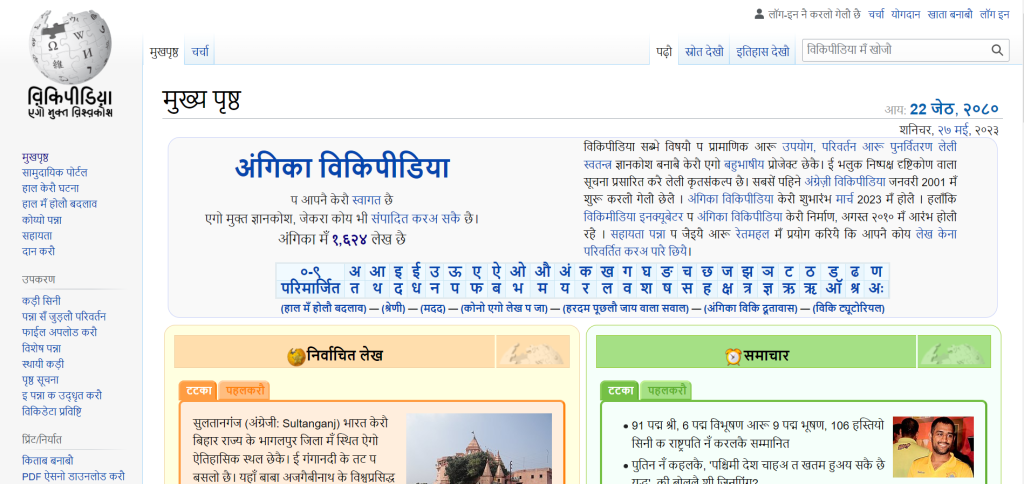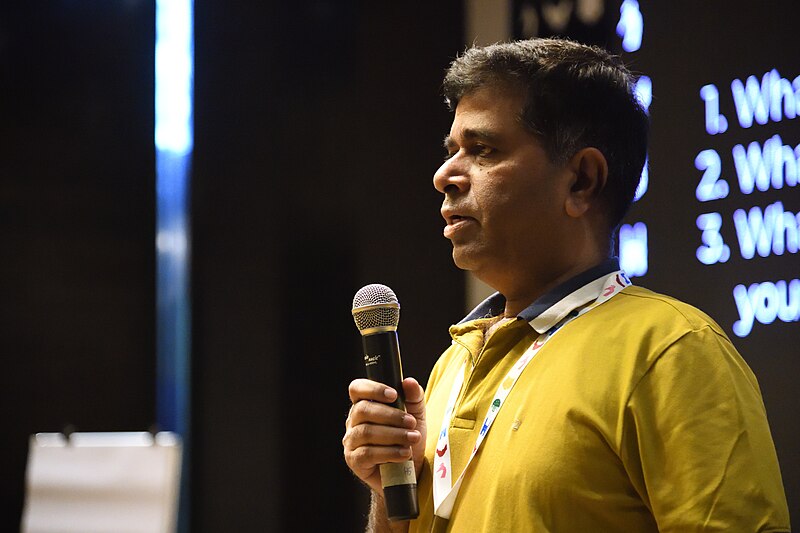Angika is a language spoken in the Bihar and Jharkhand states of India, as well as the Terai region of Nepal. According to the 1997 census, it had around 7 million speakers. Currently, efforts are being made to increase the visibility of this language on Wikimedia projects.

The Angika Wikipedia was in the incubator stage since August 2010 and officially became a full-fledged Wikipedia on 22nd March 2023. Kundan Amitabh, who laid the foundation of the Angika Wikipedia and is the creator of Angika.com, shared invaluable insights based on his experiences, lessons learned, and hopes for the Angika Wikipedia.
How did you begin to work on the Angika incubator and what were some of the challenges?
I learned about the incubator through a fellow Wikimedia volunteer. It is challenging to discover information about the Wikimedia incubator due to visibility issues. In 2010, I started by translating an article from English Wikipedia into Angika. I also translated the interface into Angika using translatewiki.net. I took care of other prerequisites for the approval of the incubator to ensure the existence of a platform where people can contribute to the language. A language code was necessary, so I applied for it online and received it within a month or two.
How did you engage other contributors?

Wikimedia outreach activities used to occur frequently in Mumbai, my city of residence. Community members from various language backgrounds would participate in these events. During those occasions, I would actively search for other Angika speakers. However, typing in Angika posed a challenge at that time. To address this issue, I would teach typing to Hindi Wikipedians who hailed from the Angika-speaking region so that they could contribute to the Angika incubator.
Building a community is a significant undertaking. To encourage community contributions, I reached out to Angika writers, utilized social media for outreach, and raised awareness about the language’s usage and the opportunity to contribute. I reached out to several intellectuals, but they showed little interest. Surprisingly, it was the common people who displayed more enthusiasm to contribute. The lack of individual recognition might be a factor, as online volunteerism is not so popular.
What are your hopes for the future with regards to the newly created Wikipedia?
My main expectation is the creation of a larger community and increased involvement from active participants. This would lead to a more vibrant community overall. It is our responsibility to expand the community and convey to potential volunteers that contributing as speakers of the language is their duty. One can utilize content translation from English to Angika. These translations can be used to create translation models in the future.
The challenges faced by small Wikipedia communities like Angika differ from larger ones, with translation being particularly crucial for smaller communities. There is also a need to integrate it with Google Translate and utilize other technologies like lexemes. However, all of these initiatives require an active community to drive the movement forward. So, the hope is that more people voluntarily come forward to contribute to the Angika Wikipedia.
There are 1,625 articles in Angika Wikipedia as of 29th May 2023 and it can be accessed at https://anp.wikipedia.org.

Can you help us translate this article?
In order for this article to reach as many people as possible we would like your help. Can you translate this article to get the message out?
Start translation